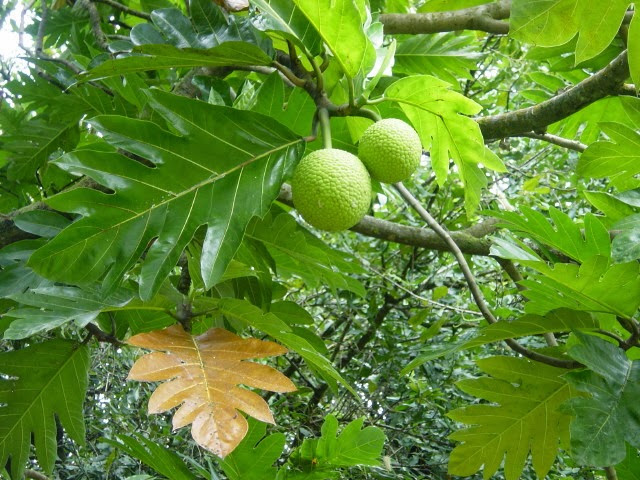10 health benefits of millet
Sa millet is a good food diet because it is rich in carbohydrates but low in calories. The millet is also known as the Moraceae mulberry family, originating from Malaysia and the Pacific islands, which are widely grown in the southern provinces of our country.
What do you know about millet?
The millet is a large timber tree, with a height of 15-20m, with milky white latex, horizontal branches and branches, making a wide, thick canopy. Large leaves are divided into 3-9 long oblong lobes, stubby stalks, falling to collapse on branches. In particular, the leaves are glossy green on the upper surface, the underside is very rough, when the color changes, the color of dry, yellow brown can be decorative.
Sedan is a beautiful green tree and has many benefits. The tree is used as a landscape, shade tree and is grown in offices, schools, hospitals, residential areas, street sidewalks and especially garden villas .
Not only do scenes, sa millet is also grown as a fruit tree to bring high economic value to the people.

Tree and fruit.
Many health benefits
Sa millet is a medicine that is quite useful in folk treatment of many oral, antiseptic, diabetes, hypertension . Parts that can be used in medicine include: roots, leaves, shells and sap. According to Oriental medicine, the root of sa millet is calming, treating cough; shell has antiseptic effect; leaves have the effect of eliminating inflammation, diarrhea, diuretic. In some countries, roots are used to treat asthma and stomach disorders, toothache, skin diseases; bark of sorghum used to treat scabies; Sycamore is used to dilute diarrhea and dysentery; The fresh leaves are used with fresh papaya leaves, pounded with lime to treat the boils. In our country, people use sa leaves to treat edema, jaundice by cooking fresh leaves to drink.
Here are 10 health benefits of millet fruit that few people know about:
1. Encourage new cell growth
The antioxidants in sorghum provide an effective shield against sun and sun rays. It also encourages new cell growth to make the damaged skin smooth and youthful again.
2. Cardiovascular health
Sa millet is an excellent source of potassium - a useful nutrient for your heart. This substance reduces blood pressure in the body and regulates the heart rate by minimizing the effects of sodium. Dietary fiber helps reduce cholesterol by blocking intestinal absorption. It lowers bad cholesterol (LDL), and improves good cholesterol (HDL) in the body. It reduces triglyceride - which is one of the major causes of cardiovascular disease.

Sa millet is a medicine that is quite useful in folk treatment of dental diseases, antiseptic .
3. Anti-infection
Sa millet contains a good amount of antioxidants, helping the body develop resistance against pathogens. It also cleans harmful free radicals from the body, causing aging and other age-related diseases.
4. Power supply
A cup of millet provides 60 grams of carbohydrate, which is the body's main source of energy. It is very beneficial for athletes and regular people.
5. Prevent skin inflammation
Fresh sauces can help reduce unwanted inflammation. It inhibits the activity of enzymes that cause inflammation and prevents excessive production of nitric oxide, thereby preventing inflammation.
6. Produce collagen
Drinking sauces juice helps brighten skin and firm skin. Large amounts of vitamin C in sauces help promote the production of collagen - a protein that provides skin elasticity.
7. Treatment of skin diseases
The ash of ash leaves is extremely useful for treating skin infections. The sap of the millet is applied on the skin surface affected by skin diseases such as eczema, psoriasis and dermatitis.

Sedan is a beautiful green tree and has many benefits.
8. Nourish hair
Sa millet contains many nutrients necessary for maintaining hair health. Vitamin C in millet facilitates the absorption of minerals and provides nutrition to the hair. Sa millet is a good source of omega-3 and omega-6 acids, which reduces hair breakage and loss.
The fatty acids in the millet regulate the production of sebum in the scalp, reducing dandruff and itching. It also inhibits scalp inflammation and dead cells, preventing hair loss.
9. Diabetes
The dietary fiber inhibits the absorption of glucose from the food we eat, thus controlling diabetes. It contains the necessary compounds to help the pancreas produce insulin in the body.
10. Good for the digestive system
The dietary fiber releases toxins from the intestines, helping to function properly in the bowel and digestive system. It prevents related gastrointestinal diseases such as heartburn, heartburn, ulcers and gastritis, eliminating toxic compounds in the intestine. It also protects the mucous membrane of the colon to help prevent cancer-causing chemicals from the colon.
- Many benefits from sa fruit
- The benefits of dancing
- 12 health benefits of coconut oil
- 9 effects of chocolate on health
- 13 great benefits of litchi for health and beauty
- Discover more health benefits of raisins
- Tofu in combination with these foods, increasing the benefits many times better than the tonic
- Benefits and harms of vitamin A?
- Surprise with the health benefits of mango leaves
- 6 grains better than medicine
- Discover the unexpected benefits of 'nude'
- Unexpected benefits from melon with every home's health
 Green tea cleans teeth better than mouthwash?
Green tea cleans teeth better than mouthwash? Death kiss: This is why you should not let anyone kiss your baby's lips
Death kiss: This is why you should not let anyone kiss your baby's lips What is salmonellosis?
What is salmonellosis? Caution should be exercised when using aloe vera through eating and drinking
Caution should be exercised when using aloe vera through eating and drinking